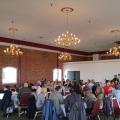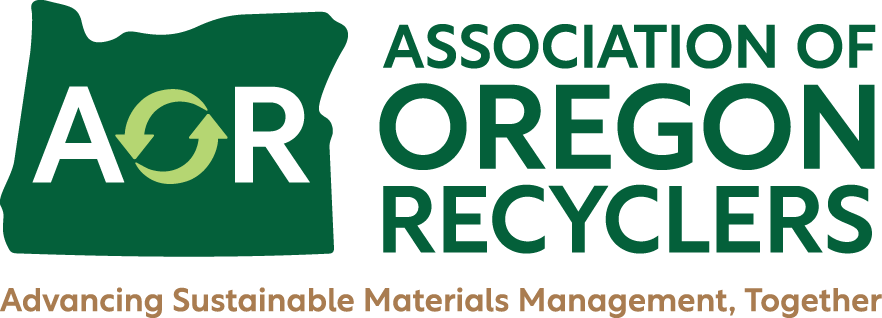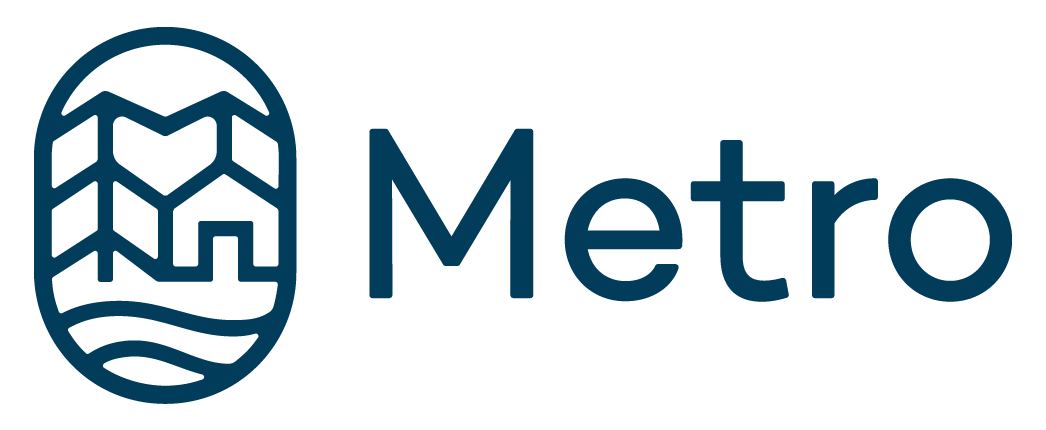Forum Focuses on Bottle Bill’s Past, Present and Future
 On April 14th, attendees from all over Oregon descended on Salem to hear about the past, present and future of the state’s 43-year-old beverage container redemption program. Held at the 145-year-old Reed Opera House in downtown Salem, the focus of the forum was to educate attendees both on the history of the program, as well as what to expect in the coming years regarding the program’s move to a dime deposit and the inclusion of more containers.
On April 14th, attendees from all over Oregon descended on Salem to hear about the past, present and future of the state’s 43-year-old beverage container redemption program. Held at the 145-year-old Reed Opera House in downtown Salem, the focus of the forum was to educate attendees both on the history of the program, as well as what to expect in the coming years regarding the program’s move to a dime deposit and the inclusion of more containers.
The event kicked off with a spirited trip down memory lane from former State Representative Vicki Berger, whose father Richard Chambers is known as the program’s “true father,” though former Governor Tom McCall often receives credit for the passing of House Bill 1036. Considered one of the most intensely lobbied bills in the history of the Oregon Legislature, Berger stated her father never wanted credit for the bill that not only set the tone for in-state environmental efforts going forward, but also became a pioneering program for other states to mimic.
Berger also reflected on her memories of the 2007 passing of Senate Bill 707, which had four main focuses, the biggest being the addition of water and flavored water products to the program, as of January 1, 2009, and the establishment of a Bottle Bill Task Force charged with providing recommendations on how to further expand or modify the bottle bill’s recycling system. Berger compared the legislative process of expanding the program to the “opening of a fine Swiss watch. Be careful when you try to put it all back together.”
From there, Oregon Beverage Recycling Cooperative (OBRC) President John Andersen – who credited Berger for educating Andersen during his first foray into politics in 2006-2007 – provided details on other recent Bottle Bill legislation, including House Bill 3145 (2011), Senate Bills 112 and 117 (2013) and HB 2808 (2015). Andersen also thoroughly covered how the OBRC operates.
Andersen provided numerous notable stats associated with the cooperative, which is made up of 84 members and participants (any distributor of beverages), as well as details on its BottleDrop redemption centers. For example:
- 15 BottleDrop locations are currently responsible for 41 percent of all returns
- 43 percent of returns go through 200 large grocery stores
- 16 percent of returns go through 2,400 plus convenience stores.
- OBRC plans to open four new BottleDrop locations per year until 45 locations are established, that is unless population grows like it has, then more will be considered.
- 90,000 plus households are currently signed up for the OBRC’s Green Bag program, representing 20 percent of all returns.
- 2023 is the expected completion of statewide rollout of redemption centers and collection programs, though that could change depending on population.
- Bottle Bill redemption efforts support over 1,200 fundraising charity groups.
- OBRC has spent over $2 million on its Bottle Bill awareness campaigns. It also provides ongoing education at community events statewide (festivals, events, etc.) and through its elementary education program, which has reached over 35,000 children.
Andersen also touched on the two major amendments to the program, which are set to occur within the next two years. As of April 1, 2017, the nickel deposit put in place way back in 1971 will increase to a dime. The increase in the deposit was based on the fact the program had two consecutive years of below 80-percent redemption (see HB 3145). The other major change will include the expansion of the program to recognize teas, coffee, juice, energy and sports drinks (more than or equal to four ounces or less than or equal to 1.5 liters) as of January 1, 2018. According to Andersen, expanding the program to capture these new products will result in an estimated increase of 200 million containers per year.
In addition to Resource Recycling Executive Editor Jerry Powell providing a breakdown of how Oregon stacks up to the nation’s other nine stateside redemption programs (10 total programs if you count Guam as well), the afternoon portion of the forum consisted of a Q&A panel discussion where questions were posed to Andersen, Powell and Oregon Department of Environmental Quality Solid Waste Analyst Peter Spendelow.
The day ended with attendees touring OBRC’s newest Salem BottleDrop location, located at 1800 Commercial St. NE.
AOR would like to thank everyone who made the trip to Salem for this wonderful, educational event. Judging by post-event conversations, many left Salem more knowledgeable about the state’s Bottle Bill and the importance of the program to the State of Oregon.
The AOR board and the forum planning committee would also like to extend a heartfelt “thank you” to those who took time out of their busy schedules to attend and participate in the April 14th event, including Governor Kate Brown’s Chief of Staff (and former AOR lobbyist) Kristen Leonard, former State Representative Vicki Berger and Representative Ken Helm (D) - District 34 - Washington County.


